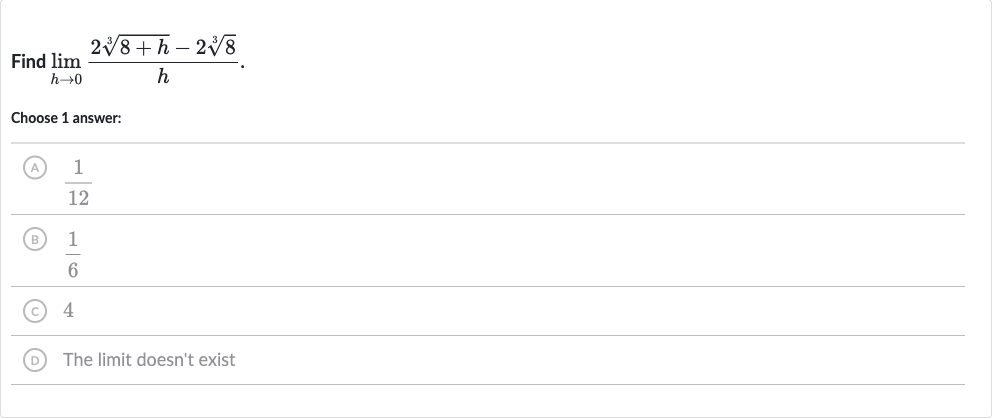Full solution
Q. Find Choose answer:(A) (B) (C) (D) The limit doesn't exist
- Recognize Problem Type: First, let's recognize that this is a limit problem involving a difference quotient, which is a common way to find the derivative of a function at a point. We're essentially finding the derivative of at .
- Apply Definition of Derivative: To solve this, we can use the definition of the derivative, which is the limit of the difference quotient as approaches . So we're looking for .
- Apply L'Hôpital's Rule: We can apply L'Hôpital's Rule since the limit is in the indeterminate form . To do this, we need to differentiate the numerator and the denominator with respect to .
- Differentiate Numerator: The derivative of the numerator with respect to is the derivative of which is using the chain rule.
- Differentiate Denominator: The derivative of the denominator with respect to is just since the derivative of with respect to is .
- Apply L'Hôpital's Rule Again: Now we can apply L'Hôpital's Rule and take the limit of the derivatives: .
- Plug in : Plugging into the derivative of the numerator, we get .
- Simplify Result: Simplifying, is because is the reciprocal of , which is .
- Simplify Result: Simplifying, is because is the reciprocal of , which is .Multiplying by gives us .
More problems from Euler's method
QuestionGet tutor help
QuestionGet tutor help
QuestionGet tutor help
QuestionGet tutor help
QuestionGet tutor help
QuestionGet tutor help
QuestionGet tutor help
QuestionGet tutor help
QuestionGet tutor help

